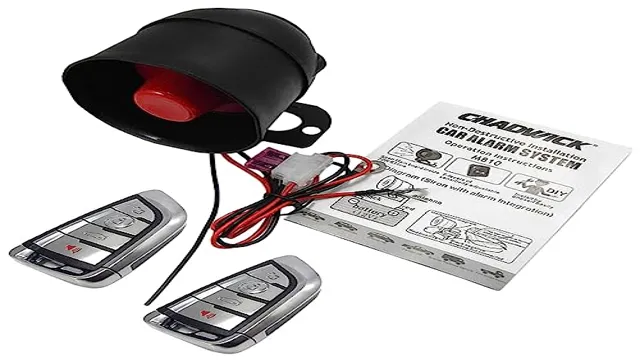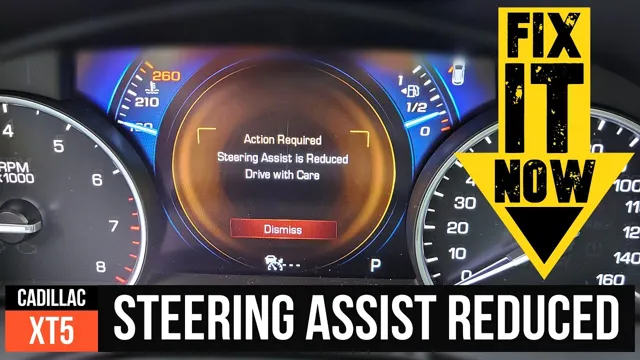Fine-Tune Your Car Alarm: A Step-by-Step Guide to Adjusting Sensitivity and Enhancing Security
Are you tired of your car alarm going off for no reason? It can be frustrating to hear your alarm blaring at all hours of the day, especially if it’s a false alarm. Thankfully, adjusting car alarm sensitivity can help solve this issue. By tweaking a few settings, you can ensure that your car alarm only goes off when there’s a genuine threat.
In this blog post, we’ll explore this topic in-depth and provide you with practical tips on how to adjust your car alarm sensitivity. So, buckle up and let’s get started!
Understanding Car Alarm Sensitivity
If you’re having trouble with your car alarm going off too easily or not going off when it should, it’s likely an issue with the sensitivity level. Adjusting the sensitivity on your car alarm is important for ensuring that it properly detects threats without being triggered by harmless movements such as passing trucks or strong winds. To adjust your car alarm sensitivity, start by checking your car’s manual and locate the sensitivity adjustment function.
Typically, you’ll need to use a screwdriver to turn the sensitivity dial or press a button to adjust the level. Once adjusted, test the sensitivity by gently tapping the car or shaking it slightly to ensure that the alarm goes off just enough to deter potential thieves without becoming a nuisance to you or your neighbors. With proper sensitivity adjustment, you can have peace of mind knowing that your car is well-protected against theft and break-ins.
How alarms work
Car Alarm Sensitivity Car alarms are crucial in protecting your vehicle from theft or damage. However, car owners often face problems with the sensitivity levels of their car alarms. Understanding the sensitivity of your car alarm is essential to safeguarding your car against unauthorized access or accidental damage.
Car alarm sensitivity refers to the level of alertness in detecting even the slightest movement or shock to your car. High sensitivity can cause false alarms due to everyday movements like passing cars, gusts of wind, or even a small animal jumping on your car. You can adjust the sensitivity of your car alarm to match your location and situation.
For example, if you park your car in a quiet neighborhood, lower the sensitivity levels to avoid unnecessary alarms. On the other hand, in busy or high-crime areas, increasing the sensitivity is recommended. Ultimately, understanding and adjusting your car alarm’s sensitivity level is key to ensuring proper security for your vehicle.

Possible triggers
Car alarm sensitivity can be a tricky subject to understand. Some car alarms are so sensitive that they go off at the slightest touch, while others seem impervious to even the most aggressive of break-in attempts. So what causes these differences? One possible trigger of car alarm sensitivity is the type of sensor used.
Some alarms rely on shock sensors that detect when the vehicle is jostled or bumped, while others use motion sensors that are triggered by movement around the car. Additionally, factors such as vehicle location, type of terrain, and weather conditions can all impact car alarm sensitivity. For instance, if your car is parked in a crowded area with lots of foot traffic, it may be more prone to false alarms than if it were parked in a remote location.
By understanding the different triggers that can impact car alarm sensitivity, you can make an informed decision on which type of alarm system is right for you.
Why adjust sensitivity
Adjusting the sensitivity of your car alarm is an important task that every car owner needs to understand. Car alarms are designed to detect any unauthorized entry into your vehicle, and they use sensors to monitor movement and noise within the car. The sensitivity of your car alarm should be set at a level that will trigger an alarm when there is a high level of risk of theft or vandalism.
By adjusting the sensitivity of your car alarm, you can prevent false alarms from being triggered by normal movements within the vehicle. This can save you time and frustration when dealing with your car alarm system. Therefore, it is important to understand the basics of car alarm sensitivity to maintain the security of your vehicle.
Don’t forget to test your alarm regularly, so you know it’s working properly in case of an emergency.
How to Adjust your Car Alarm Sensitivity
Car alarms are designed to keep your vehicle safe from theft or damage in case of a break-in. However, sometimes, the sensitivity levels might be too high, triggering false alarms. This can be very annoying, especially for your neighbors.
Luckily, adjusting the sensitivity of a car alarm is not as complicated as it sounds. First, locate the control module of your car alarm system, usually installed under the dashboard, and look for a sensitivity dial or button. Turn on the ignition, and set off the alarm by activating it with the remote control.
Then, adjust the sensitivity level based on your preference, testing it each time you make a change. Remember to turn off the alarm before making adjustments to avoid disturbing your neighbors. By following these simple steps, you can adjust your car alarm sensitivity and enjoy peace of mind without any unnecessary nuisances.
Locate your alarm controls
Adjust Car Alarm Sensitivity Adjusting your car alarm sensitivity is a key aspect of maintaining optimal security for your vehicle. It’s essential to locate your alarm controls so that you can make the necessary adjustments to suit your preferences. Once you’ve located the alarm controls, the process of adjusting the sensitivity level is quite simple.
You need to identify the alarm sensor and adjust the level of sensitivity. The alarm sensor is usually located behind the dashboard or in the engine compartment. To adjust the sensitivity, you may use a screwdriver or a knob to increase or decrease the sensitivity level.
A lower sensitivity means the alarm will not be triggered by minor movements, while a higher sensitivity will set off the alarm more easily. By adjusting your car alarm sensitivity, you can ensure that the alarm only goes off when there is a genuine threat to your vehicle and not be triggered by harmless movements such as a gust of wind or a passing animal. In conclusion, adjusting your car alarm sensitivity is a simple yet crucial aspect of keeping your vehicle secure.
With a little effort and care, you can customize your alarm to suit your needs and ensure that it functions optimally. So, if you’re concerned about the security of your car, take the time to locate your alarm controls and adjust your sensitivity level. You’ll be glad you did!
Consult your user manual
“When it comes to adjusting your car alarm sensitivity, the first step is to consult your user manual. Car alarms often come with varying levels of sensitivity and it’s important to find the one that suits your needs. The manual will typically provide clear instructions on how to adjust the sensitivity level so that you can customize it to your preference.
If you’re unsure about which setting to choose, try testing out the different levels to find the one that works best for you. Remember to always keep in mind your surroundings, as setting your alarm too high could cause unnecessary disturbances to those around you. By consulting your user manual and taking the time to find the right sensitivity level, you can ensure maximum protection for your vehicle while minimizing any unnecessary noise.
” Keyword: Car alarm sensitivity.
Test and adjust sensitivity
Adjusting the sensitivity of your car alarm is an important task that should not be overlooked. If your alarm is too sensitive, it may trigger frequently, causing frustration and annoyance. On the other hand, if it is not sensitive enough, it may not detect a real threat when it matters most.
To test and adjust the sensitivity of your car alarm, start by checking the manufacturer’s instructions to identify the specific settings that control sensitivity. Then, start by testing the alarm in a quiet area to see what actions trigger it. Try tapping on the car, opening doors, or even walking near the car to see how it reacts.
If it triggers too easily, you may want to adjust the sensitivity to be lower. If it is not sensitive enough, try increasing the level until it responds appropriately. Remember to test it in different conditions, such as during windy or rainy weather, as this can affect the sensitivity.
By properly adjusting the sensitivity of your car alarm, you can ensure that it will provide the necessary protection when you need it most.
Additional Tips and Tricks
If you’re wondering how to adjust car alarm sensitivity, there are several tips and tricks to consider. Firstly, consult your car’s manual to find out whether your alarm system has adjustable sensitivity settings. If it does, follow the manufacturer’s instructions to make the necessary adjustments.
If your car is an older model without such settings, you may need to take it to a professional mechanic or alarm installer, as adjusting the sensitivity of the alarm’s shock sensor requires specialized equipment. Additionally, if your car alarm is too sensitive and frequently goes off in response to minor vibrations or movements, consider triggering it manually before leaving your vehicle to prevent false alarms. Finally, make sure your alarm system is regularly maintained and that its sensors are free of debris and dirt, as this can affect its sensitivity and overall effectiveness.
By implementing these tips and tricks, you can ensure that your car alarm is properly set up and effectively protects your vehicle from theft or damage.
Consider professional help
When it comes to managing your mental health, it’s important to remember that you don’t have to do it alone. Seeking professional help is a great way to get additional support and guidance on your journey. Whether it’s talking to a therapist, joining a support group, or reaching out to a psychiatrist for medication management, there are a variety of options available to you.
A trained mental health professional can help you identify patterns and triggers, provide coping strategies, and offer a safe and non-judgmental space to process your thoughts and emotions. Remember, there’s no shame in seeking help – in fact, it’s a sign of strength and self-awareness. So if you’re struggling with your mental health, don’t hesitate to reach out for professional support.
You deserve to prioritize your well-being and invest in your mental health journey.
Don’t be too sensitive
When it comes to not being too sensitive, there are additional tips and tricks that you can try to implement in your life. One of the first things to keep in mind is to be aware of your emotions and how you react to different situations. Sometimes we may be quick to feel offended or hurt, when in reality it may not have been the intention of the other person.
It’s important to take a step back and evaluate the situation before reacting. Another tip is to practice self-care, which can help build resilience and a stronger emotional state. This may include things like exercise, meditation, or talking to a trusted friend or therapist.
It’s also important to remember that everyone makes mistakes, and sometimes it’s necessary to forgive others and move on. By implementing these tips and tricks, you’re shaping a healthier and more positive mindset, which will ultimately benefit you in the long run.
Conclusion
Adjusting your car alarm sensitivity is like finding the perfect balance between a ninja and a rock star. You don’t want to be too quiet and miss potential threats, but you also don’t want to be too loud and annoy everyone within a 10-mile radius. It’s all about tweaking your alarm until it gives the perfect response to any potential danger.
So, remember to be patient, experiment and find the sweet spot that will keep your car safe without driving everyone else crazy.”
FAQs
How do I adjust the sensitivity of my car alarm?
To adjust the sensitivity of your car alarm, locate the sensitivity knob or button on your alarm system. Turn the knob or press the button in the direction that corresponds with your desired sensitivity level. Test the sensitivity by triggering the alarm with a light tap on the car.
Can I adjust the sensitivity of my car alarm on my own?
Yes, in most cases you can adjust the sensitivity of your car alarm on your own. Refer to your car owner’s manual or alarm system manual for instructions on locating and adjusting the sensitivity knob or button.
Why should I adjust the sensitivity of my car alarm?
Adjusting the sensitivity of your car alarm can help prevent false alarms, which can be annoying to you and disturbing to your neighbors. It can also help ensure that the alarm is triggered when someone tries to break into your car.
What should I do if adjusting the sensitivity of my car alarm doesn’t help prevent false alarms?
If adjusting the sensitivity of your car alarm doesn’t prevent false alarms or you are still having issues with the alarm, you may want to consider having it professionally inspected and serviced. A qualified mechanic or alarm technician can diagnose and fix any issues that may be causing false alarms.





